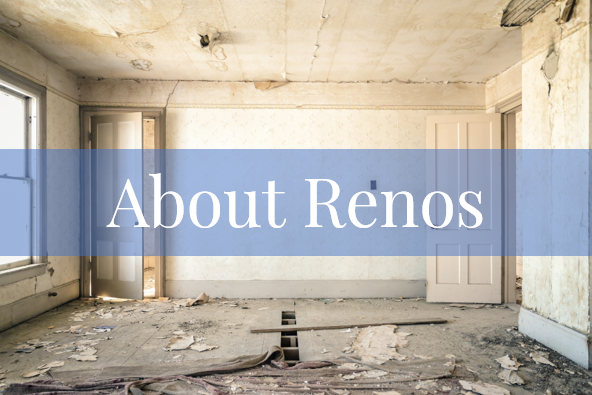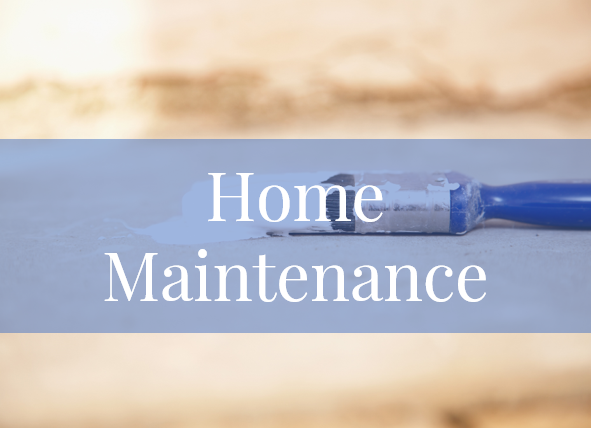How to Protect Your Home Against 5 Common Causes of Fire
/This is a topic that is near to my heart. In 2005, my house was gutted by fire, and I lost everything. There are so many common causes of fire that we are unaware of. That's why reading this post might just save the lives of you and your family. I'm going to talk about the five most common causes of fire and what you can do to protect your home against them.
Approximately 360,000 house fires occur every year, and over 50% of those start in the kitchen. My own house fire in 2005 was started by a faulty toaster oven. I had used that toaster oven every day for over 10 years, and nothing had happened. However, on that fateful day in March, the mechanism inside the oven kept going despite my having turned it off. Because it was still plugged in, a fire started. From that point forward, I ALWAYS unplug all small appliances after use!
Prefer to listen?
1. Kitchen Fires
With so many fires starting in the kitchen, it makes sense to address ways we can ensure fire safety in the kitchen. One of the easiest things to do is follow my lead and always unplug small appliances after use. Had I done this in my home, the 2005 fire wouldn’t have happened!
Cooking fires are also very common. Here are a few tips to ensure safety:
Stay in the kitchen when you are using the stovetop for frying, grilling, or broiling something in the oven. If you have to leave the kitchen for more than a minute, turn the stove or oven off. It only takes a fraction of a second for a fire to start.
If you are simmering, boiling, roasting, or baking, check it regularly. Don’t ever leave the house when you are cooking, and use a timer to remind yourself to check on the food frequently.
Always keep your stovetop free of anything that can catch fire, including oven mitts, wooden utensils, or food packaging.
Always have a fire extinguisher close by in the kitchen. If a grease fire should start, smother it with the lid of the pan. If the fire is in the oven, shut the oven heat off immediately and do not open the oven door. If the fire continues, get out of the kitchen and close any doors behind you to contain the fire. Make sure all family members leave the building as well. Call 911 immediately.
2. Heating Equipment
We all like to feel cozy and warm, and sometimes that means having a space heater turned on. A couple years ago, we were asked to do renovations to our client’s family room after a space heater fire destroyed the room. They had left the room for about 10 minutes, and during that time, the dog had run into the room, tripped on the cord, and knocked the heater over. The next thing they knew, a fire broke out.
Consider replacing your old space heaters with new ones that turn off automatically when overheated or tipped over. Also, make sure you keep them at least 3 feet away from anything flammable when in use.
Have your furnaces and chimneys cleaned professionally and inspected once per year. This will ensure they are working properly and nothing is obstructing them.
Make sure your fireplaces have sturdy screens that will keep the flames inside. Allow the ashes to cool completely, and then use a metal bucket to dispose of the ashes.
3. Electrical Systems
As a Licensed Electrical Contractor registered with the Electrical Safety Authority, we get calls all too frequently to replace or repair issues with overheated electrical outlets or switches. We met one of our long-term customers after their aluminum wiring caught fire in their front hall switch. Too many people believe that if they plug something into an outlet and it works, there must not be anything wrong with it. But that isn’t always the case.
Particularly if your home is older, you should always have your home’s electrical systems inspected by a Licensed Electrical Contractor at least every 5 years. If you have aluminum wiring, this should be done every 3 years.
Aluminum wiring is softer than copper and was used in homes from the mid-60s to the mid-70s. As you use switches and plug things in and out of receptacles, the terminals loosen since the wire is so much softer than copper. By having an electrician inspect your electrical devices, you could be saving yourself and your family from a devastating house fire.
Always hire a Licensed Electrical Contractor to complete any electrical work in your home. Do NOT... can I repeat that… do NOT hire anyone to do work on the side— not even a Licensed Electrician. They are doing work illegally, and if you do end up with a house fire, your insurance company will not cover the damage. It’s just not worth the few dollars you might end up saving.
Stay alert for the warning signs of issues with the wiring: blown fuses, visibly damaged wiring, discolouration around outlets, flickering lights, humming or buzzing coming from switches, receptacles, or the electrical panel, and burning odours.
Have Arc-Fault Circuit Interrupters (AFCIs) installed in your home. These look and work like regular breakers, but when they detect an arc, they will shut that circuit breaker off.
Power surges can damage your appliances and even cause fires. To prevent this, consider having a whole-house surge protection device (SPD) installed on the main electrical panel. You can also have point-of-use SPDs installed on specific appliances and devices.
4. Candles
This one may seem obvious, but a lot of house fires are caused by unattended candles. Here are a few tips to ensure safety when burning candles:
Never leave the room when you have a candle burning.
Keep lit candles at least a foot away from combustible materials.
Keep candle wicks trimmed to within ¼" of the top of the candle.
Do not allow candles to burn down to the bottom of the container.
Extinguish all candles prior to leaving the house or going to bed at night.
Only place candles on secure surfaces that are unlikely to tip over.
5. Smoking
Again, this one should be obvious, but it’s surprising how many house fires are caused by careless smoking habits. Here are some safety tips from the US Fire Administration.
Smoke outside. Many things in your home can catch fire from a stray ember or ash.
Make sure your cigarette has been fully extinguished. Never walk away from a fully lit cigarette, and put water on the ashes and butts before tossing them out in the garbage.
Do not smoke when you are sleepy or have taken medications that may cause you to be drowsy.
Never smoke around medical oxygen.
Never smoke in bed, as your mattress, pillow cases, etc. can all catch fire should you fall asleep with a lit cigarette.
Bonus Tip: Christmas Trees
During the holiday season, many of us bring live Christmas trees into our homes and string them with Christmas lights. Here are a few important tips to remember:
Before you pick your perfect tree, make sure it is really fresh. The needles should be hard to pull from the branches, and they should break when bent between your fingers.
Place the tree away from heat sources such as fireplaces, vents, heaters, or radiators.
Make sure the stand is always filled with water. Check daily.
If you’re getting an artificial tree, look for the 'Fire Resistant' label.
In summary…
I hope some of these tips will help you ensure fire safety in your home. Because of my own house fire, I now make it my mission to talk about fire safety whenever I can with family and friends. As Licensed Electrical Contractors registered with the Electrical Safety Authority, we can help ensure the electrical system within your home is safe. Give us a call at 905-259-3344 to book an inspection of your home.

















